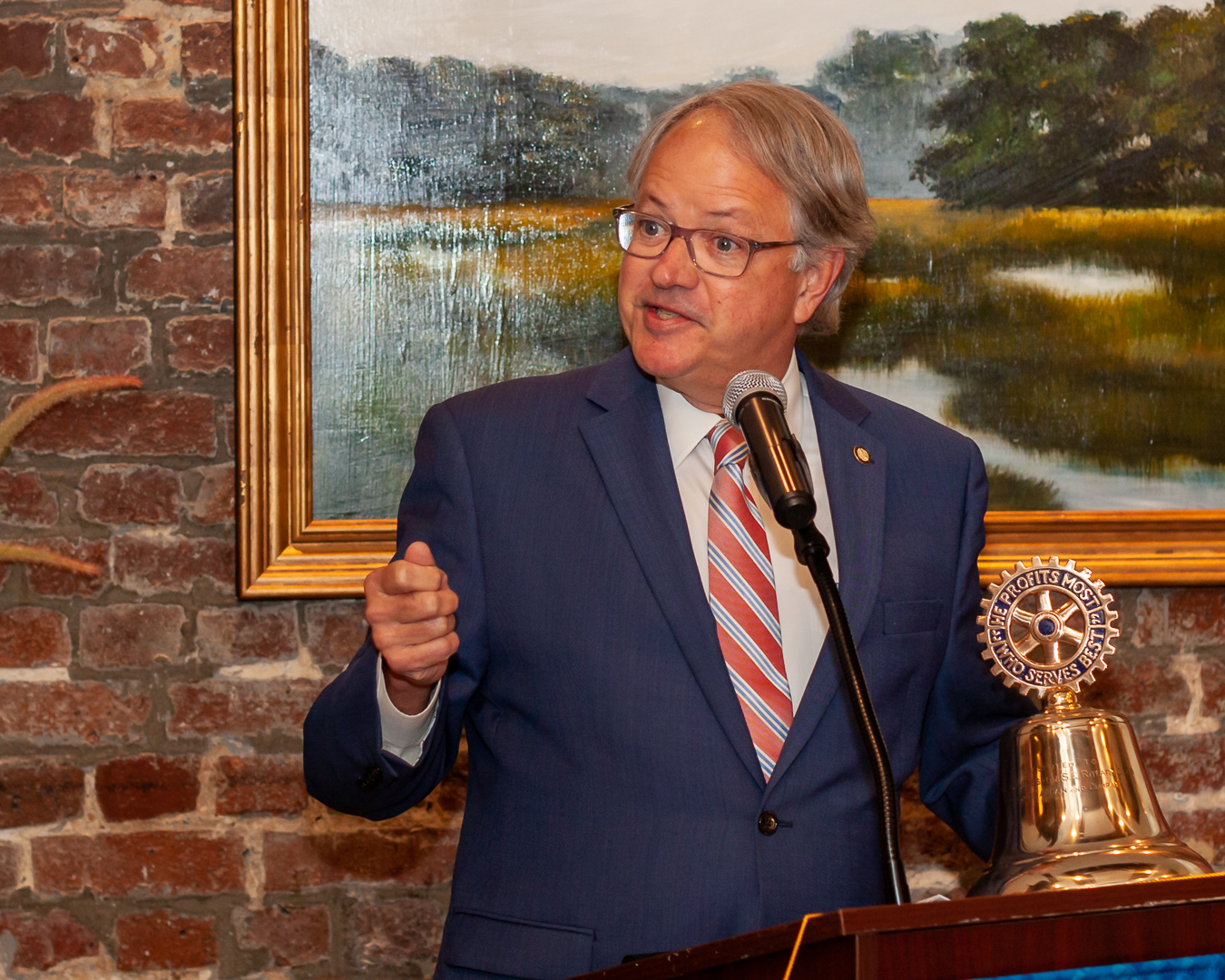March 22, 2016 – Our keynote speaker this week was Ben Navarro, Founder of Meeting Street Academy (“MSA”). Currently, there are three MSA schools: Meeting Street Academy – Charleston, the flagship school, which opened its doors in August 2008; Meeting Street Academy – Spartanburg, which was opened in 2012; and Meeting Street Academy at Brentwood, a free, public school open to all families living in the newly formed attendance zone that was opened in 2014.
It is well known that South Carolina is faced with high statewide poverty rates and low student achievement. Over the years, South Carolina has invested heavily in various efforts to fix its education system. However, dropout rates in under-resourced schools continue to increase and few under-resourced elementary students are reaching proficiency in reading and math. While Ben shared many statistics regarding Charleston County academics, the most alarming statistic is that students from all but one Charleston County School District high school did not score high enough on the SAT to meet the admission requirement of the University of South Carolina or Clemson University.
The unfortunate truth is that educational inequity is commonplace in South Carolina. More than half of South Carolina students come from low-income families and, by fourth grade, only 20 percent of these students are proficient in reading and math. While many South Carolina schools employ dedicated teachers and serve hardworking families who want the best for their children, the current operational model is simply not designed to meet the needs of under-resourced communities, despite significant per-pupil expenditures. In contrast, the MSA model delivers an education on par with the most elite private schools in the country at a cost comparable to South Carolina’s statewide per pupil average. Within this budget we are able to provide not only an excellent education, but to also address the unique needs of an underserved population by providing significant benefits vis-à-vis public school students.
The mission of MSA is to empower young people from under-resourced neighborhoods to become confident, productive and principled members of society through excellence in academics. The MSA model of excellence is built upon academic challenge, development of character and partnership with family. MSA provides under-resourced families with a life-changing opportunity for their children to learn what it takes to succeed both inside and outside of the classroom.
The MSA approach to academic involves a four pieces puzzle: (1) early education; (2) family partnership; (3) holistic approach; and (4) teacher excellence. MSA offers programs for three and four year old students that encourage the development of social, emotional, intellectual and physical skills. MSA requires that the families commit to supporting there children’s education through collaborating with teachers, volunteering in the school ad attending numerous education workshops and events.
MSA uses rigorous assessment tools to evaluate the academic performance of its students relative to their peers at both public and independent schools nationwide. Historically, MSA students demonstrate academic results that significantly exceed national public school averages and are competitive with private institutions. For example, students in all three MSA schools scored well above the national average on the Measures of Academic Progress Assessments in 2015.
— Abe Gutting, Keyway Committee


